Keynote Speakers and Session Chairs
Opening lecture
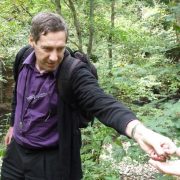
Thomas Kuyper

Thom Kuyper
Thomas W. Kuyper, the Netherlands
Thomas is a professor emeritus in fungal ecology and diversity at Wageningen University and a visiting scientist at Naturalis Biodiversity Centre, Leiden. He obtained his PhD in fungal taxonomy at Leiden University in 1986, subsequently worked as an assistant professor at the Biological Station Wijster (1985-2000) before moving to Wageningen. He has studied both saprotrophic and mycorrhizal fungi in natural and agro-ecosystems in temperate and tropical areas. He has served the Netherlands Mycological Society in a number of functions (secretary; chairman; chair of several committees including the committee on vernacular names for Dutch fungi).
Theme 1: Cell biology, biochemistry and physiology
Chairs:
Han Wosten (Netherlands), Jan Dijksterhuis (Netherlands)
Keynotes:
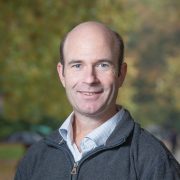
Alexander Idnurm

Alexander Idnurm
Alexander Idnurm was awarded a PhD from the University of Melbourne in 2002. He then did post-doctoral studies at Duke University Medical Center, USA (2002-2007) and established his own group at the University of Missouri-Kansas City. In 2014 he returned to the University of Melbourne. His research has focused on gene functions and evolution in a diverse array of fungal species, with a focus being on those that cause problems in agriculture or as human pathogens. These species have included the pathogen Cryptococcus neoformans, model zygomycete Phycomyces blakesleeanus, and the canola pathogen Leptosphaeria maculans. A unifying theme behind this research has been towards gaining insights into the mechanisms by which fungi undergo rapid change to adapt to their environments.
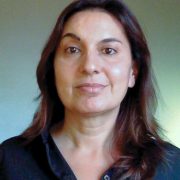
Meritxell Riquelme Pérez

Meritxell Riquelme Pérez
Meritxell Riquelme is a Research Professor and Chair of the Department of Microbiology at the Center for Scientific Research and Higher Education of Ensenada (CICESE), Baja California, Mexico, where she has been on the faculty since 2004. She obtained a BA degree in Biology at the University of Barcelona, Spain. She received a MSc degree in Plant Pathology and a PhD in Microbiology from the University of California, Riverside. During her PhD thesis in S. Bartnicki-Garcia’s lab, she investigated the role of the Spitzenkörper in hyphal morphology and growth. She was a postdoctoral fellow at the University of Oxford, United Kingdom, in the lab of L. Casselton, where she worked on the receptor and pheromone mating type genes of Coprinopsis cinerea. Her current research focuses on understanding basic aspects of hyphal morphogenesis in fungi. By combining advanced microscopy and molecular biology she investigates the biochemical role and secretory routes of vesicles involved in the polar apical growth of hyphae of Neurospora crassa. Additional research interests have led her to study the ecological distribution of the human pathogen Coccidioides spp., a fungus that causes Coccidiodomycosis or Valley Fever in the semi-arid regions of Baja California. More recently she has studied the fungal diversity of deep-sea sediments of the Gulf of Mexico.
She is a member of the Mexican Academy of Sciences. In 2018 she received the B. O. Dodge award for her contributions to the Neurospora research community and in 2019 she was elected Fellow of the Mycological Society of America. She is editor of the journals Fungal Genetics and Biology, The Cell Surface, Communications Biology, and Frontiers in Cell and Developmental Biology. Previously she was editor of Fungal Biology. She has served in the Mycological Society of America (MSA) as member of the Karling Lecture Committee (2005-2008, chair 2007-2008), of the Genetics and Cell Biology Committee (2008-2010, chair 2009-2010), and as councilor for Cell Biology/Physiology (2014-2016). She served as member of the Neurospora Policy Committee (2008-2012), the Fungal Genetics Policy Committee (2013-2019), the International Fungal Biology Conference Steering Committee (since 2014), and the Executive Committee of the International Mycological Association (since 2014).
Theme 2: Environment, ecology and interactions
Chairs:
Duur Aanen (Netherlands), Yu Fukasawa (Japan)
Keynotes:
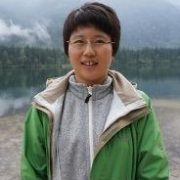
Maiko Kagami

Maiko Kagami
Yokohama National University
Graduate School of Environment and Information Sciences
Yokohama, Japan
Maiko Kagami is a Professor in Graduate school of Environment and Information Sciences, Yokohama National University, Kanagawa, Japan, since April 2018. Her research interests lie in the area of aquatic ecology, examining the dynamics and roles of plankton and microbes in biogeochemical cycling.
Maiko completed her Ph.D. at Kyoto University, Japan in 2002. During her Ph.D., she examined plankton dynamics in Lake Biwa, and found the importance of parasitic fungi infecting phytoplankton.
From 2002-2006, she worked as a JSPS research fellow (postdoc) in the Netherlands Institute of Ecology (NIOO-KNAW), Center for Limnology. She discovered the new material flow via parasitic fungi in aquatic food webs, which was named as Mycoloop after Mycology and her name (Maiko).
From 2006 September, she became a faculty member, a lecturer (2006-2012) and associate professor (2012-2018) in Department of Environmental Science, Faculty of Science, Toho University, Chiba, Japan. She continued her research line of aquatic ecology.
Maiko has actively collaborated with oversea researchers, particularly Germany and Netherlands. She has been PIs of several Grants-in-Aid (KAKENHI), including those promoting international collaborations. From 2016-2018, she has been a PI of the Fund for the Promotion of Joint International Research (Fostering Joint International Research) and stayed for 1.5 year as a guest researcher at Leibniz-Institute of Freshwater Ecology and Inland Fisheries (IGB-Berlin) in Germany and at Netherlands Institute of Ecology (NIOO-KNAW) in the Netherlands.
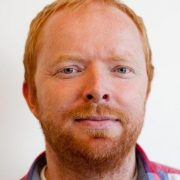
Håvard Kauserud

Håvard Kauserud
Håvard Kauserud, is Professor in Biology at the University of Oslo, and has a broad focus on fungal ecology and biology. One main research avenue has been to assess how fungal communities are affected and structured by environmental variability and change, and how fungal traits influence on community assembly. In most studies, fungal communities have been surveyed by DNA metabarcoding analyses, but he has also used historic sporocarp observations to assess how fungal communities and fungal life-history events changes through time.
Theme 3: Evolution, biodiversity and systematics
Chairs:
Jos Houbraken (Netherlands), Lei Cai (China)
Keynotes:
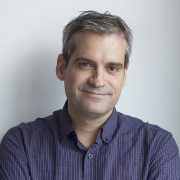
Toni Gabaldón

Toni Gabaldón
Barcelona Supercomputing Centre (BSC-CNS), and Institute for Research in Biomedicine (IRB), Spain
Toni is a ICREA Research professor, and group leader at the Institute for Research in Biomedicine (IRB), and the Barcelona Supercomputing Centre (BSC), and associate professor at the UPF. He leads the comparative genomics groups. His main research interests are in the fields of genomics and evolution with significant contributions to the understanding of how genes, pathways, organisms and communities evolve and function.
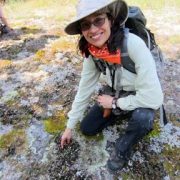
Jolanta Miadlikowska

Jolanta Miadlikowska
Duke University, USA
Jolanta a Senior Researcher at Duke University, Department of Biology. She received her Ph.D. in Biology from the University of Gdansk in Poland in 1999 and completed five years of postdoctoral research at Duke University. She is a systematist interested in biodiversity, taxonomy, phylogenetics and evolution of lichenized Ascomycota, with a special emphasis on cyanolichens from the genus Peltigera and their cyanobacterial photobiont Nostoc. She also studies the eco-evolutionary mechanisms and factors shaping interactions among lichen symbionts using peltigerous lichens as a model system. Her research integrates traditional specimen-based revisionary methods (morphology-, anatomy-, and chemistry-based approaches) and molecular phylogenetic tools, including genomic data, focusing on both the fungal and Nostoc partners. Jolanta is also part of the NSF-funded GoLife project exploring biodiversity, ecological factors and biogeographical patterns in endolichenic and endophytic communities associated with lichens and plants.
Theme 4: Fungal pathogenesis and disease control
Chair:
Juan McEwen (Colombia), Wieland Meyer (Netherlands)
Keynotes:
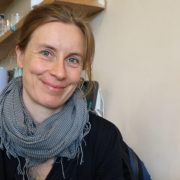
Eva Stukenbrock

Eva Stukenbrock
University of Kiel, Germany
The research of Eva Stukenbrock focuses on the ecological interactions and co-evolution of fungi associated with plants. Since her PhD at the ETH in Zurich, she has used the plant pathogenic fungus Zymoseptoria tritici as a model to study pathogen evolution. During her post doc at Aarhus University, Denmark she worked with Prof. Mikkel Schierup to apply whole genome coalescence analyses to infer the speciation history of Z. tritici and related Zymoseptoria species. In 2010, she was appointed group leader at the Max Planck Institute for Terrestrial Microbiology in Marburg, Germany, and since 2014 she is Max Planck Fellow and professor at Kiel University.
Her group integrates computational biology with experimental and molecular approaches to study mechanisms of host specialization of plant pathogens.
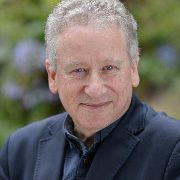
Neil A.R. Gow

Neil A.R. Gow
Theme 5: Genomics, genetics and molecular biology
Chairs:
Miia Mäkelä (Finland), Ronald de Vries (Netherlands)
Keynotes:

Sakkie Pretorius

Sakkie Pretorius
Professor Sakkie Pretorius is Deputy Vice Chancellor: Research at Macquarie University in Sydney. He has a background in synthetic yeast genomics and wine biotechnology. Sakkie began his career in South Africa. At Stellenbosch University, he became the founding Director of South Africa’s Institute for Wine Biotechnology. In the US and Europe, he conducted research at the Albert Einstein College of Medicine in New York, the Max Planck Institute for Biophysical Chemistry in Göttingen, Germany, and the Katholieke Universiteit Leuven in Belgium. In 2003, Sakkie relocated to Adelaide to take up the role of Managing Director of the Australian Wine Research Institute. In 2013, he took up his current role as Deputy Vice Chancellor Research at Macquarie University where he also initiated a research program in Synthetic Biology and founded the Australian Genome Foundry. He is the driving force behind a university-wide BioInnovation Strategy and leads the Australian team of the International Synthetic Yeast Genome project. Sakkie has published 230 research papers, delivered 600 conference presentations, won research grants totalling more than $120 million, achieved many awards, and filed six patents. Over the past three decades, he has supervised or co-supervised 33 PhD students and 56 MSc students.
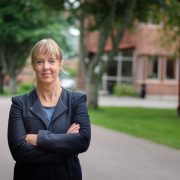
Hanna Johannesson

Hanna Johannesson
Hanna Johannesson is a Professor in Evolutionary Genetics at Uppsala University, Sweden. She established her own independent research group at Uppsala University in 2005, after a PhD at the Swedish Agricultural University and a postdoc at University of California at Berkeley. She achieved an Associate Professorship (docentur) in 2006 and between 2007 and 2013 she held a senior research position (rådsforskartjänst) funded by the Swedish Research Council (VR). Since December 2013 she is a full professor. Hanna’s research interest lies in the interface between mycology and evolutionary biology. Her group uses fungi as models to explore general evolutionary questions such as natural selection operating at multiple levels in the biological hierarchy, the causes and consequences of symbioses and switches in reproductive mode. For most of the work, she is having a Genomics approach. In particular, with funding from VR and the European Research Council (ERC) she was given the opportunity to dive deep into the causes and evolutionary consequences of meiotic drive: spore killing.
Theme 6: Applied Mycology
Chairs:
Nancy Keller (USA), Richard Belanger (Canada)
Keynotes:
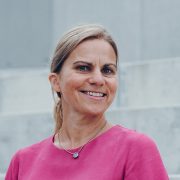
Sarah De Saeger

Sarah De Saeger
Sarah is head of the Centre of Excellence in Mycotoxicology and Public Health and senior full professor at Ghent University, Belgium.
She is coordinator of the international thematic network MYTOX-SOUTH®.
She has been elected as President of the International Society of Mycotoxicology (ISM) in 2021.
In 2022, she became Member of the Royal Flemish Academy of Belgium for Science and the Arts.
Her research focuses on mycotoxin detection methods, metabolomics and untargeted analysis, mycotoxins and human health, and exposomics.
Research results are published in more than 400 A1 peer reviewed papers (web of science h-index 58).
She was an expert in EFSA CONTAM working groups (2011-2018) and a member of the Scientific Committee of the Belgian Federal Agency for Food Chain Safety (2015-2020). In 2015 she was awarded the Ghent University Prometheus Award for research.
Moreover, next to the research activities, she is the Department Chair of Bioanalysis at the Faculty of Pharmaceutical Sciences, as well as the Faculty Director of Studies since 2022.
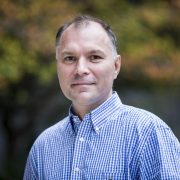
Han Wösten

Han Wösten
Han Wösten, Netherlands
Han obtained his PhD from the University of Groningen (The Netherlands) in 1994. He was appointed assistant professor at the same university in 1998 after post-doc positions at the universities of Munich (Germany) and Groningen. In 2001, he obtained a chair in Microbiology at the University of Utrecht (The Netherlands). Han’s research focuses on fungal growth and development. He is interested to use fungi in the transition to a sustainable and circular economy.
Theme 7: Nomenclature
Chairs:
Tom May (Australia), Konstanze Bensch (Germany), Bevan Weir (New Zealand)
Keynotes:
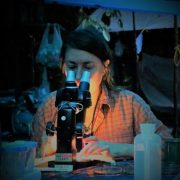
Mary Catherine Aime

Mary Catherine Aime
Cathie earned her doctorate in Biology from Virginia Polytechnic Institute and State University in 2001 under the tutelage of Orson K. Miller and completed her postdoctoral research at the University of Oxford in the United Kingdom in the lab of Lorna Casselton. She worked for four years as a research molecular biologist with the USDA-ARS, Systematic Botany and Mycology Lab in Beltsville, MD, and for four years as an Assistant and Associate Professor at Louisiana State University. Currently she is Professor of Mycology in the Department of Botany and Plant Pathology and Director of the Arthur and Kriebel Herbaria at Purdue University in West Lafayette, IN. The Aime Lab researches the systematics and evolution of early diverging basidiomycetes and of tropical fungi. Of particular interest are rust fungi and fungal diseases of tropical tree crops such as coffee and cacao and their socio-economic impacts on rural farmers in developing economies. Cathie is a Fellow of the Mycological Society of America (MSA), the Explorer’s Club, and the Linnaean Society of London, a former officer of the MSA and past Managing Editor of the journal Mycologia, and a Purdue University Faculty Scholar.
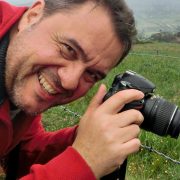
Robert Lücking

Robert Lücking
Botanic Garden and Botanical Museum of the Freie Universität Berlin, Germany
Robert obtained his PhD in Natural Sciences from the University of Ulm (Germany) in 1994. After a visiting professorship at the Federal University of Pernambuco, Recife (Brazil), in 1998 and a postdoc to obtain his habilitation in Botany at the University of Bayreuth (Germany) in 2001, he became Collections Manager & Adjunct Curator (Lichens & Fungi) at the Field Museum, Chicago, where he worked until 2015. Since 2015, Robert is Curator (Lichens, Fungi, Bryophytes) at Botanic Garden and Botanical Museum of the Freie Universität Berlin, Germany. Robert’s research focuses on tropical lichens (taxonomy, systematics, evolution, ecology, biogeography, uses) and more recently on fungal evolution, systematics, and nomenclature.